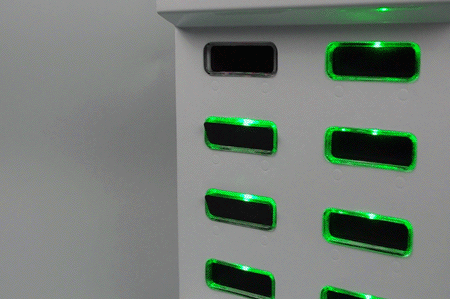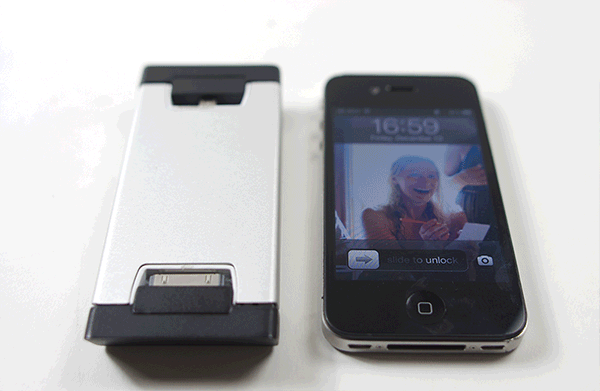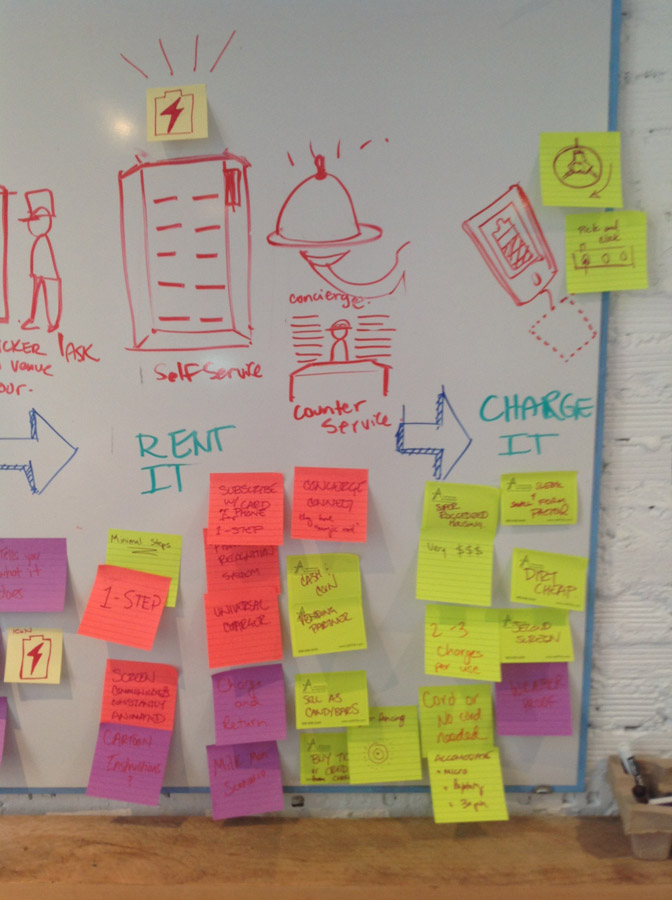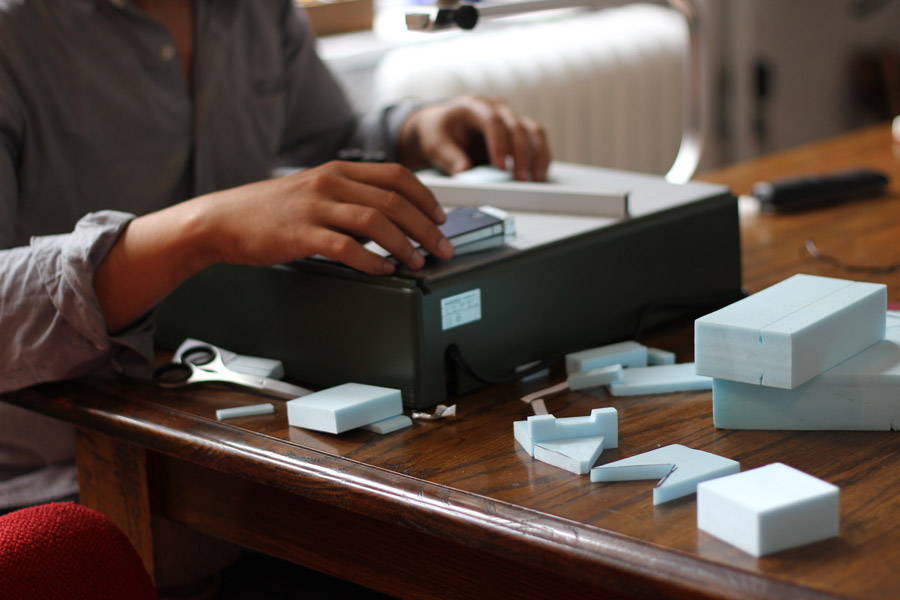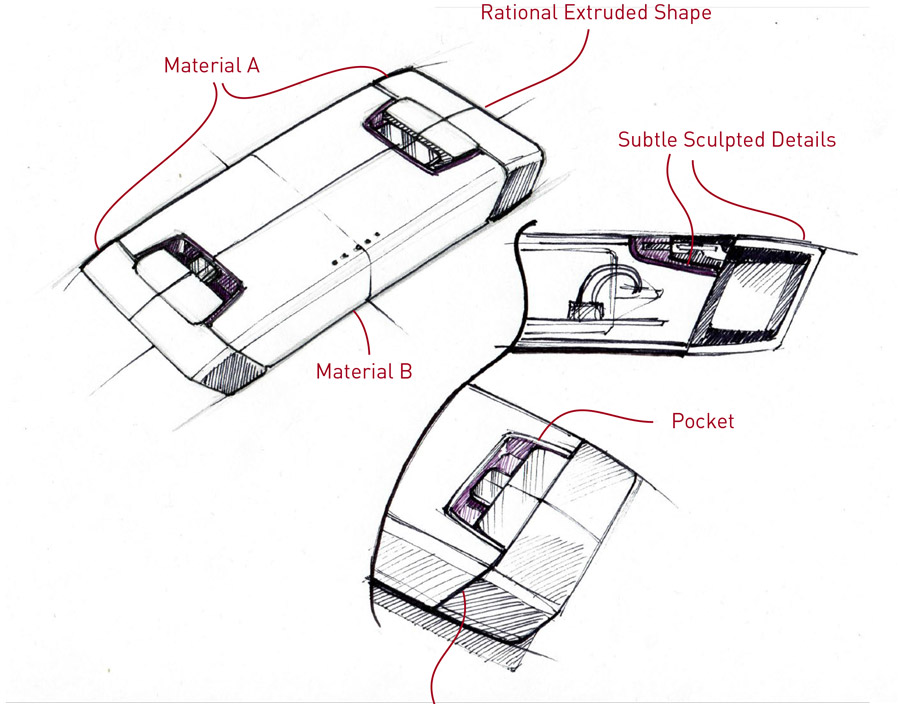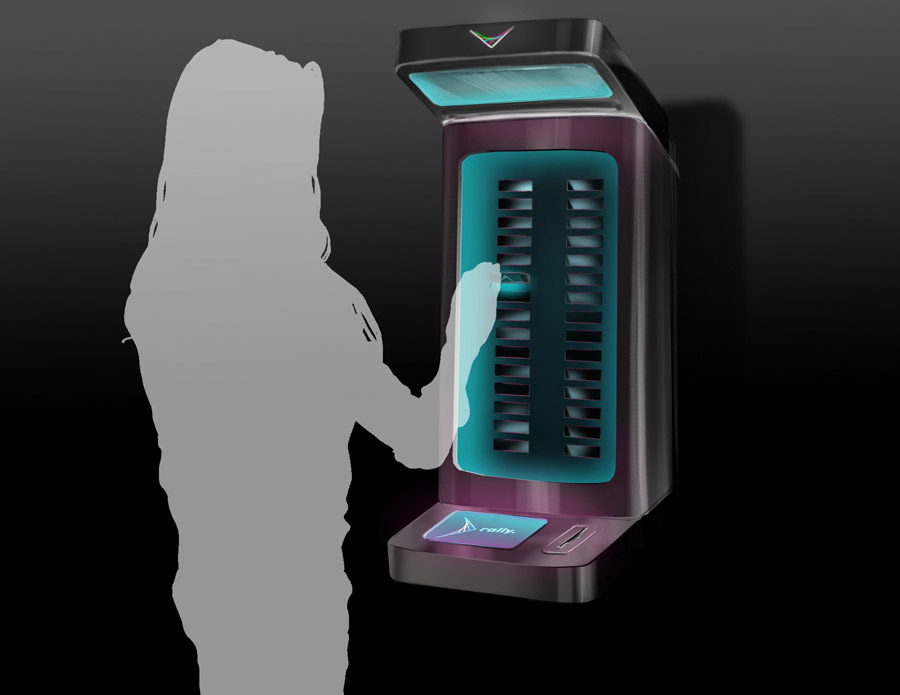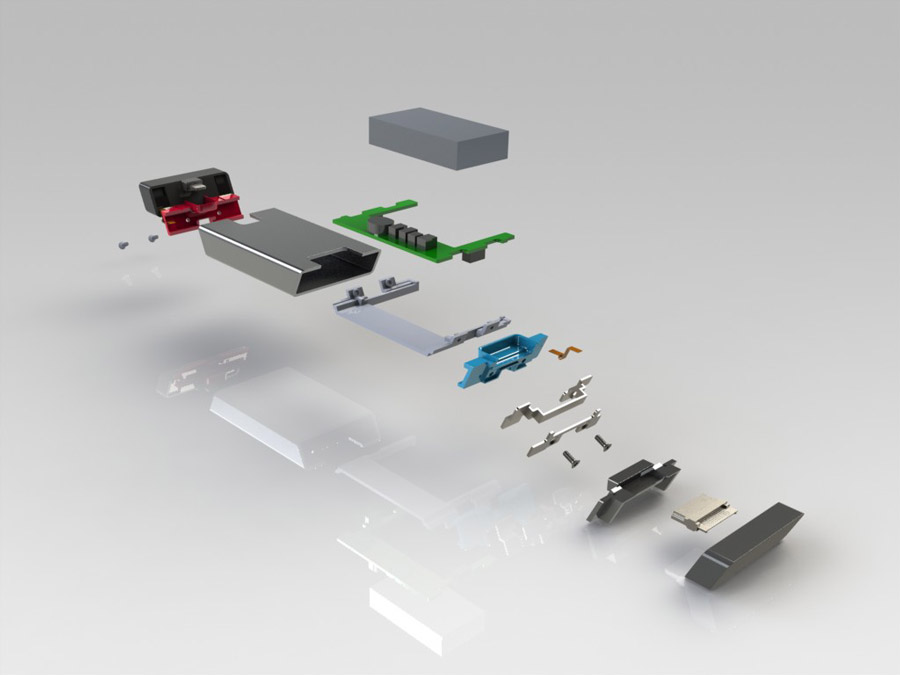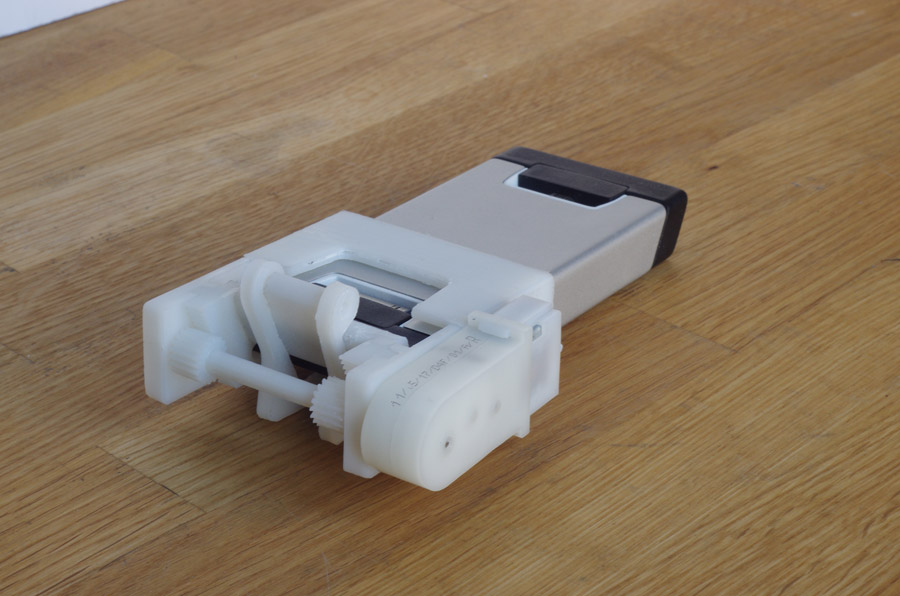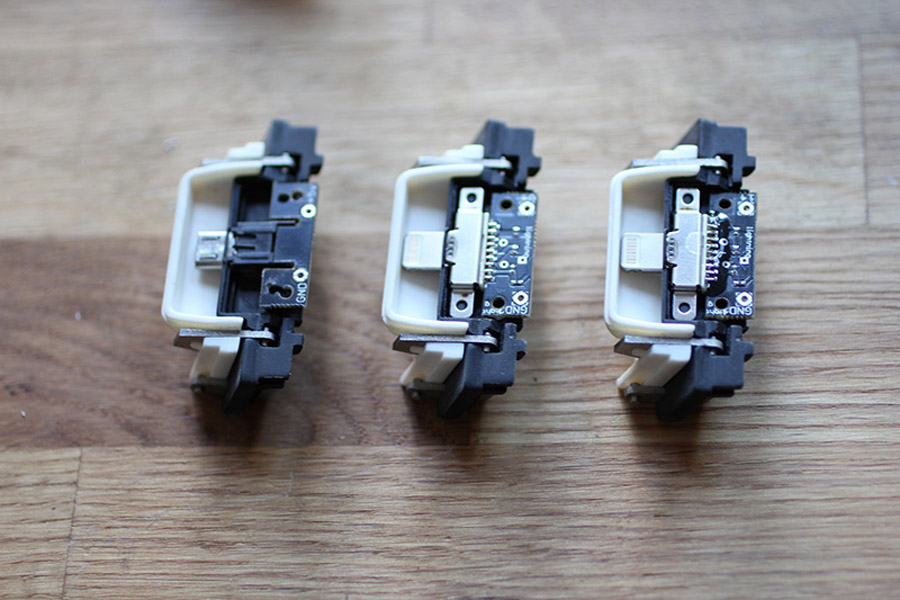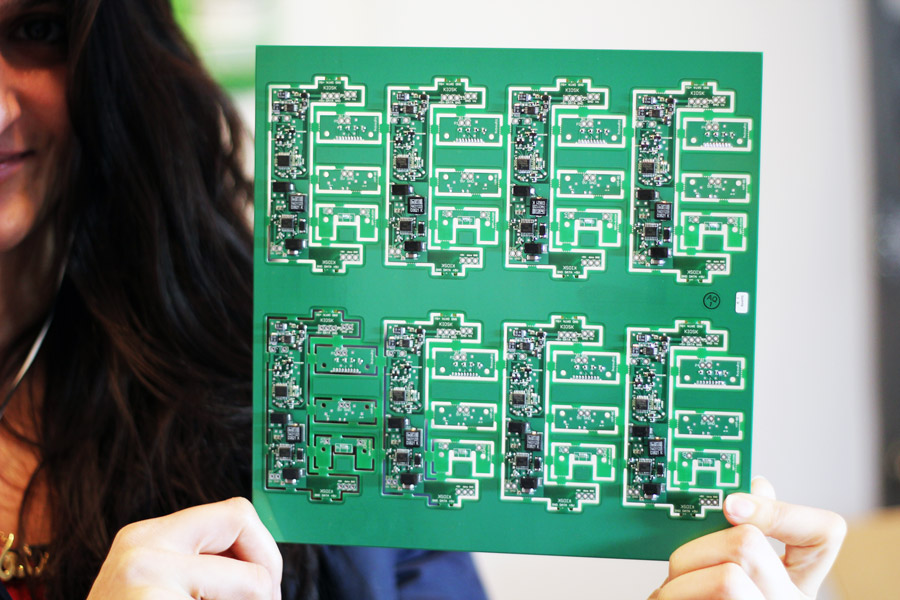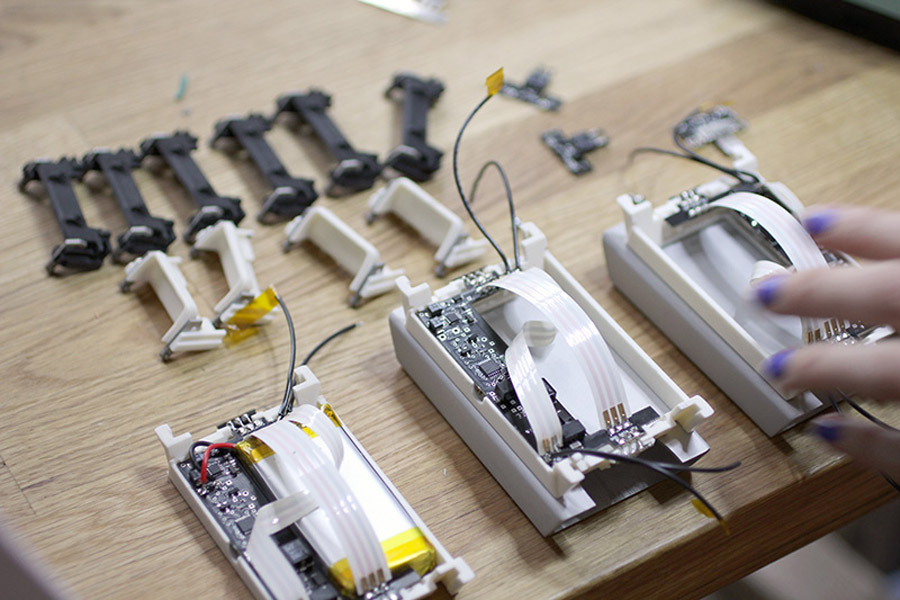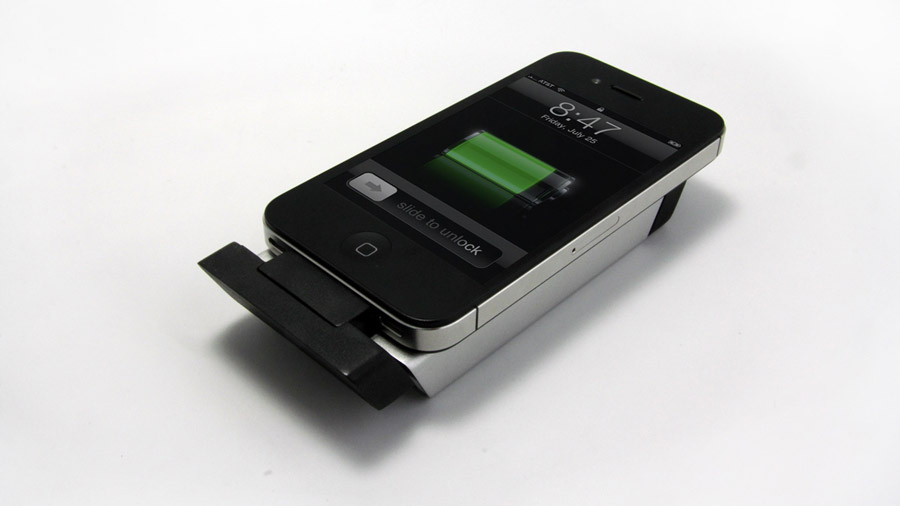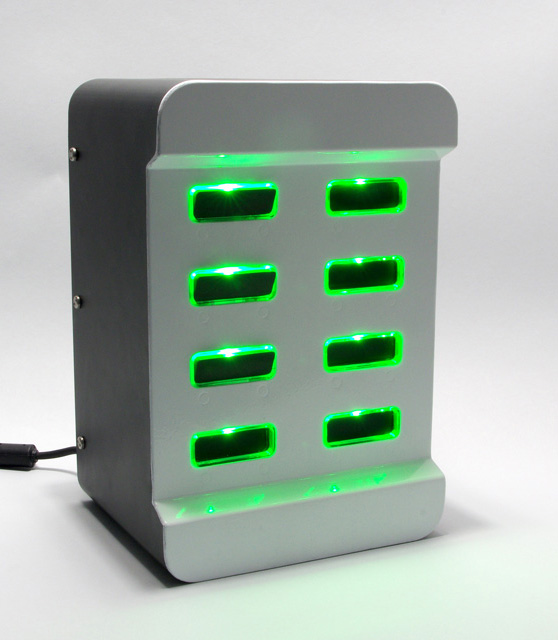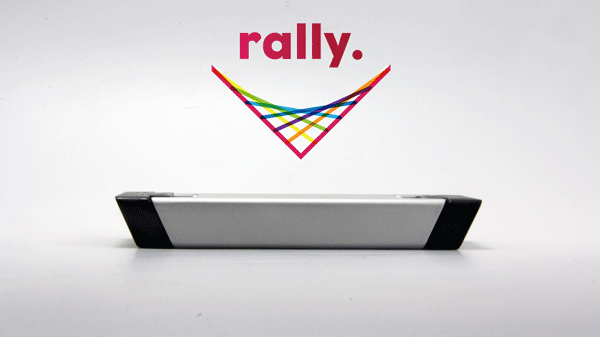
In an age where smartphones keep us connected and require constant recharging, it is disorienting to find yourself with a dead battery. Rally Power approached Tomorrow Lab to solve this problem.
The Rally Point Kiosk and Power Pack is the first portable vending solution for smartphone battery charging. At the Rally Point Kiosk, a user swipes their credit card, rents a Power Pack, and connects it to their device. The user continues with their plans, and after getting the boost they need, returns the Power Pack to an available kiosk.
Typically, to charge your phone on the go, you need an available outlet, a power adapter, and a cord. Other solutions require you to lug around additional charging accessories, or leave your phone unattended in a charging locker. Rally Power puts a convenient charging solution where you need it most.
Tomorrow Lab developed the service design, name and brand, kiosk interface, and designed and engineered both the Rally Point Kiosk and the Power Pack.
Mechanical Engineering
Industrial Design
Idea Development
Service Design
Prototyping
Automated Logistics

Together with Rally Power, Tomorrow Lab created a simple criteria for the design and feature strategy: find an affordable solution that eliminates the current requirements to charge your phone on the go.
We began by exploring current trends in the market such as upgraded power solutions, consumer approval of available vending options, and even urban bicycle rentals.
We found that power banks and charging cases require a vigilant user to keep them ready for use. Through on-the-street market research here in New York we discovered the number one problem is not finding a place to charge your phone. Users hated having to be tethered to a wall or asking a bartender to charge and watch their device (bartenders aren’t a fan of this either).
Our goal was to invent a convenient, untethered charging solution that puts the power back in users’ hands and allows them to continue with their plans.
Having the market established and the service model in place, we explored multiple options for the form factor and ergonomic interaction of the Power Pack. We built rapid prototypes and gave them to smartphone users offered feedback on the look, tone, and feel of the design, and selected a design that felt the most at home in your hand. The decision to eliminate cords from the design was further reinforced by the need to use their phone while charging. The final design allows the pack to nestle behind the phone while maintaining a secure charging connection.
For the kiosk design, we explored established rental systems such as vending machines, bike share solutions, jukebox mechanics, even mail-in returns and concierge services. Our solution has been described as a cross between RedBox and NYC's own Citi Bike system. By developing the Power Pack in concert with the Kiosk Power Pack handling system, we were able to create a system that is seamless to the user with no exposed latching points, and just a simple door to insert the Power Pack.
In addition, Tomorrow Lab developed the user experience and interaction design of the Kiosk. We developed a system that balanced two key requirements: educate the consumer about the power packs and rental process while minimizing the steps needed to complete a transaction. After creating a lean UX flow, we built the experience out as design flats and tested them with users. The outcome is a system that allows a user to rent a pack in four quick steps while learning about how the system works along the way. Lighting effects across the face of the Kiosk attract and inform the user, and allow Kiosk owners a basic level of customization.
The Mechanical Engineering for the Rally Pack enabled the ergonomic interaction and Kiosk connectivity described above while allowing for a high degree of wear resistance. The Power Pack housing is composed of extruded aluminum sections combined with acetal end caps, creating a durable and attractive housing that holds the precise tolerances needed for mechanical handling by the Kiosk. The end caps contain both the phone charging connectors and the necessary proprietary docking ports for the Kiosk. As the Power Pack is loaded into the Kiosk, the end cap raises up and exposes connectors to interface with. The sliding mechanism for the Power Pack contains a carefully engineered four-point steel pin system for long cycle life.
Electronically, the Power Pack provides 2 amps to charge your smartphone in just under an hour. To support the widest array of phones, each pack includes 2 of 3 connector types: Apple Lightning, Apple 30-pin, and Micro USB. When the pack is returned to the Kiosk, it charges at 1 amp to regain charging capabilities in 2 hours to be ready for the next user. Each Power Pack contains a self-diagnostic system that measures and reports power capacity, Pack health and a unique identification code back to the Kiosk. The Kiosk is able to poll all batteries within it and selectively vend full Power Packs with the requested connector type.
